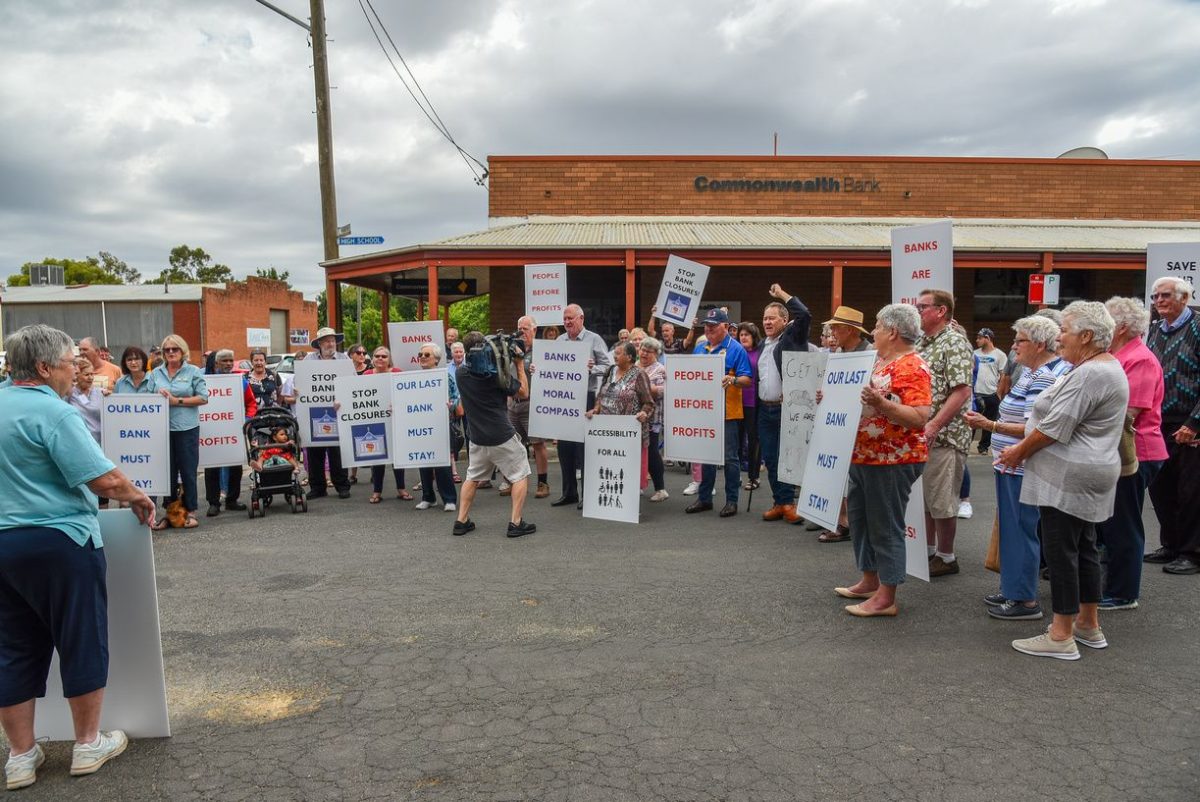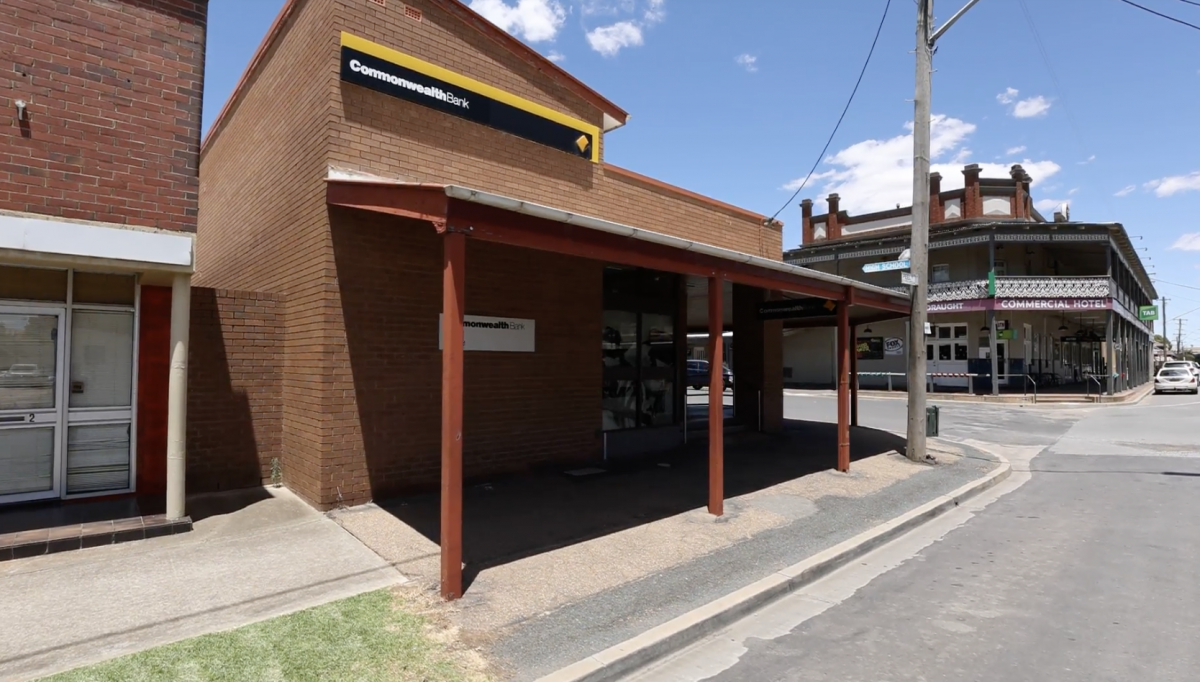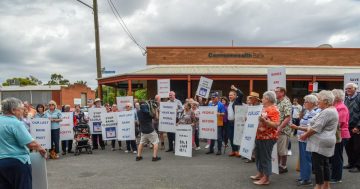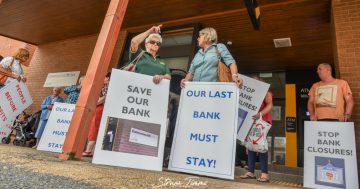
Junee residents protest against the Commonwealth Bank’s branch closure earlier this year. Photo: Struan Timms Photography.
The Senate inquiry into regional bank closures has heard that “vulnerable and marginalised people in communities” are being hurt by the removal of the services.
The public hearing was held at Junee on Thursday (21 September), with local politicians and community groups voicing their concerns and outlining the impact bank closures have on regional communities.
The Senate committee heard from a wide cross-section of the community who raised issues including the difficulties in being forced into online banking, such as internet black spots, and the elderly losing financial independence and becoming fearful of financial frauds and scams.
In the past three years, almost 700 branches across Australia have closed, and 575 towns with one or more central banks have no service.
Over the decade, the Riverina saw multiple branches shut in Junee, Temora, Gundagai, Griffith and Berrigan.
In March, Junee was set to become the 597th small town in Australia to be left with no bank before the Commonwealth Bank of Australia responded to the community backlash and agreed to continue its operations for at least the next three years.
However, Junee Shire Council general manager James Davis told the Senate committee not to accept the “window dressing offered by CBA”.
He said the matter did not address the issues at hand but instead passed them on to someone else for resolution.
“Without intervention, rural and regional Australia will ultimately be without the necessary banking services to meet the expectations that the Government and rural communities aspire to,” Mr Davis said.
“The Junee community and many others like it will rely on the outcome of this inquiry for the necessary structural change to banking services through government regulation rather than relying on self-regulation.
“The big four banks are focused on profit over people, and they have been spectacularly successful at it.”
He said the erosion of banking services in regional and rural Australia was orchestrated by corporate decision-making and relied on distorted figures and data that underpinned a profit-first and customer-second culture.
“The bank closures are having a disproportionate impact on rural Australia compared to its city and metropolitan counterparts,” Mr Davis said.
“The big four banks are meddling in social engineering by forcing their loyal customers into banking practices they do not want or can access.
“There are vulnerable and marginalised people in communities who aren’t able to use or will never own or access the internet or a mobile phone.”

The Junee CBA branch will be open for the next three years. Photo: Supplied.
Temora Shire Council Mayor Rick Firman told the senators that an independent assessor should be established.
“Submissions would need to state the reasons behind any proposed closure and show how the bank has consulted with customers, staff and the local council to ensure the impact will be managed and ensure adequate access to all banking services remains in place,” Cr Firman said.
“They should also demonstrate that they have considered all demographics, including those with mobility constraints, those with poor digital literacy and those on low incomes … and the independent assessor should be funded by the big banks.”
Cr Firman told the inquiry that the big four banks had put profit first.
“It was a matter of informing us, not engaging us … we feel as a community a blatant slap across the face for us,” he said.
“You can promote you care about people … but actions speak louder than words.
The director of Regional Development Australia, Rachael Whiting, told the Senate committee that businesses in regional towns were now expected to travel further to access banking services, and post offices could not offer all the same services.
“Automatic teller machines have been decreasing across the regions, which points to the idea that cash is not important in our daily lives,” Ms Whiting said.
She said the approaches taken by the big four banks did not align with the revitalisation of regional towns and the push for people to relocate regionally for affordability, employment and a better lifestyle.
She said one in five Australians from metropolitan areas was looking to make the country change, but regions were not ready for the potential influx of 3.5 million people.
Junee Mayor Bob Callow said the inquiry held at Junee “reinforces” to the community that the council was “serious” about the bank closures.
“The senators spoke well, and the questions were aimed at understanding the situation in Junee,” Cr Callow said.
“I’m looking forward to the result. Goodness knows how long it would take them to put it all together, but hopefully, before the bank has the final ‘hoorah’ in three years.”
Senator Matt Canavan thanked those who attended the inquiry and gave evidence.











